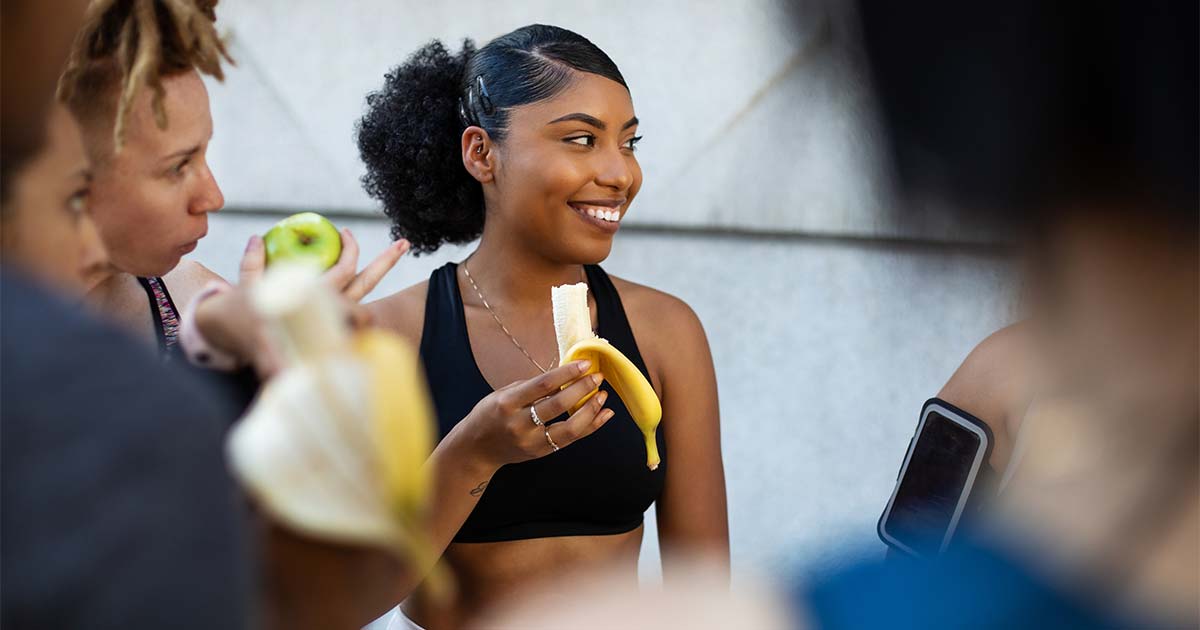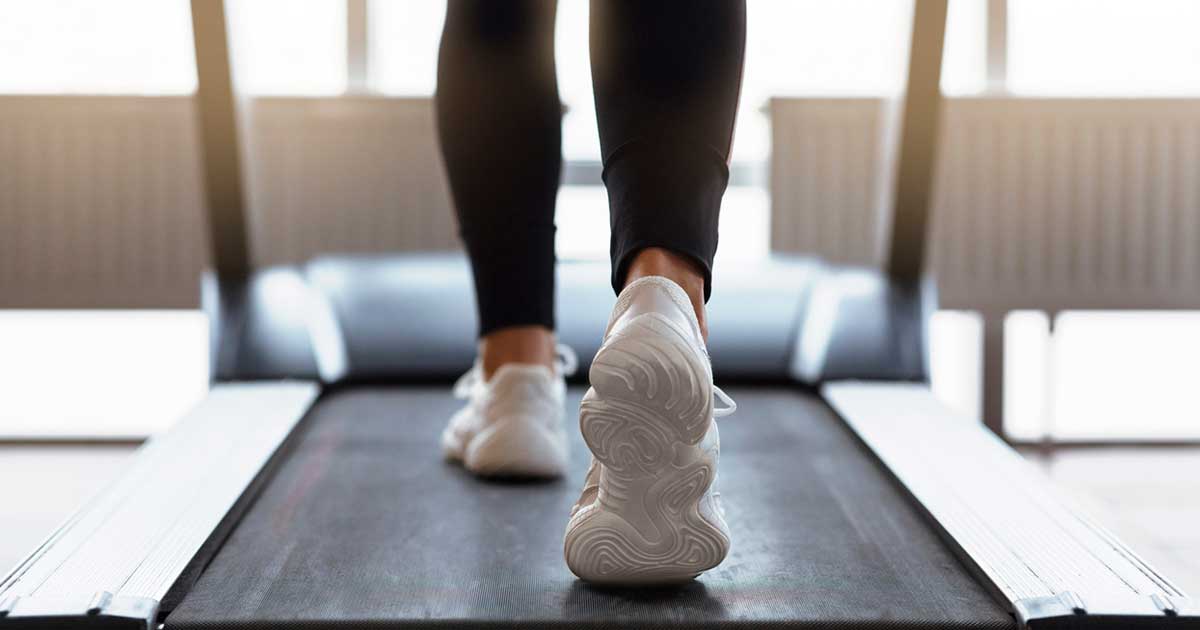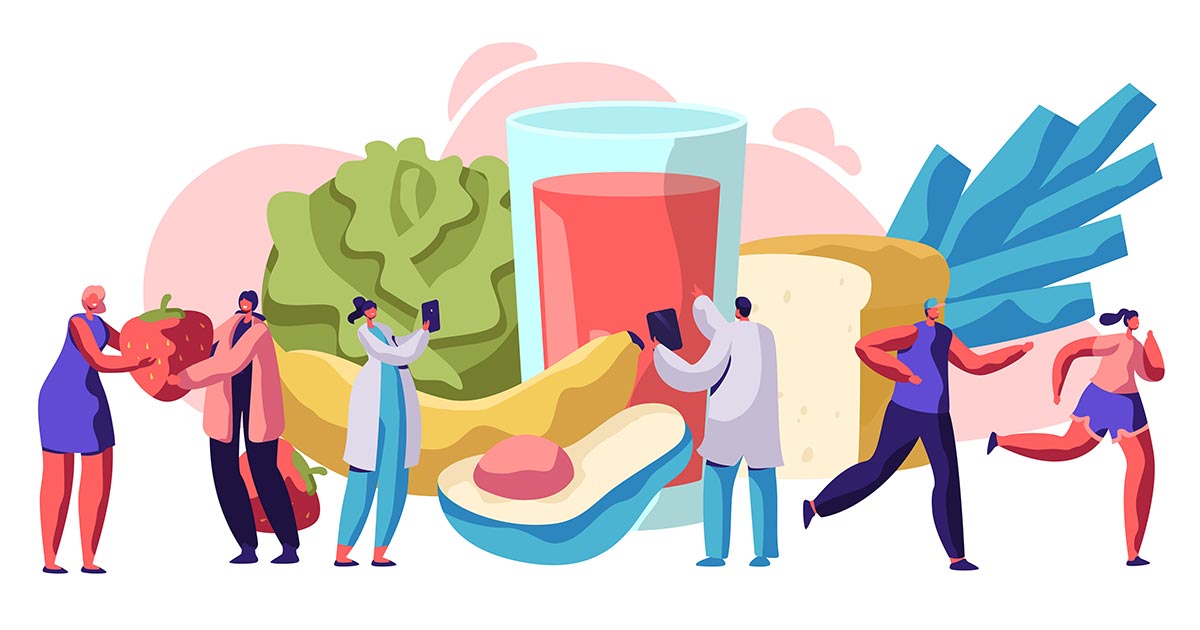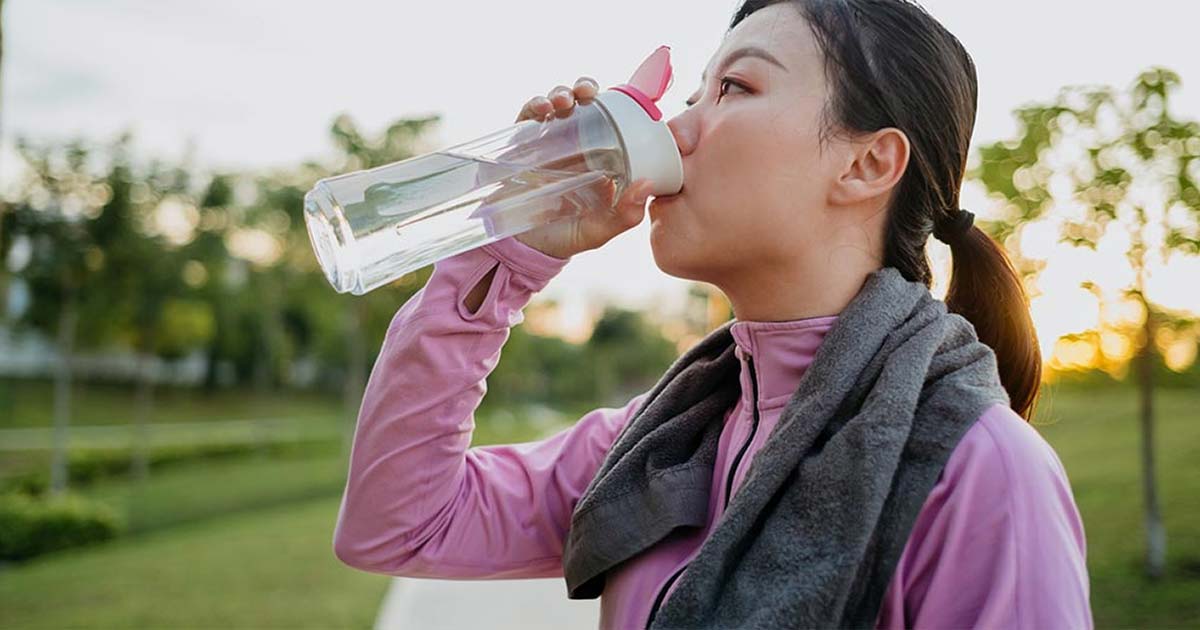Here’s What to Eat Before and After a Workout
Advice to improve your movement, fitness, and overall health from the world's #1 in orthopedics.
Whether you are an athlete in training, visit the gym daily or are more of a weekend warrior, it’s important to keep an eye on nutrition and how you’re fueling your body before, during and after exercise. Even if you’re trying to lose weight, it’s essential to make sure you’re taking in enough energy to fully benefit from your workouts and achieve the strength, endurance, agility and flexibility that you hope to gain.

“It's not just about calories,” says Heidi Skolnik, MS, CDN, FACSM, a sports nutritionist in the Women’s Sports Medicine Center at HSS and a fellow with the American College of Sports Medicine. “It's about making sure you're well fueled to be able to meet the demands of whatever activity you're doing and maintain intensity.”
Eating a balanced diet and being smart about snacking can help you stay fueled throughout your workouts.
Timing is important.
If it’s been two or more hours since you’ve eaten, it’s a good idea to “top off” your energy stores before exercising intensely or for a long duration. This advice especially applies to people who work out first thing in the morning as well as those who work out before lunch or after work or school (but before dinner). Consuming a small amount of carbohydrates (15 to 25 grams) can help you train longer and more intensely. It can also help to preserve muscle.
The further away your workout is from when you eat, the larger and more “mixed” your meal can be, meaning that it can contain fat and protein in addition to carbohydrates. The general guideline is to eat a full meal three to four hours before exercising, a higher carbohydrate snack two hours before, and/or a smaller, easy-to-digest carbohydrate right up until you start.
Some recommendations for a pre-workout mini snack include things like half a banana, a small applesauce cup or a handful of crackers or pretzels. This snack should be low in fat and fiber, so that your body is able to digest it quickly. For a slightly larger snack eaten further in advance of your workout, you can add some hummus or peanut butter to your pretzels or crackers, or instead eat a cup of yogurt or half a turkey sandwich.
Consider topping off your fuel again mid-workout.
Especially for longer workouts, consuming some carbohydrates can help prolong your endurance and maintain your timing and concentration. This is especially important for training or events that last longer than 60 to 90 minutes or stop-and-go sports like soccer, basketball or tennis. Some additional snack options to consider during activity include a few jelly beans or gummy bears, a tablespoon of honey or sports gels. (You’re looking for 15 to 25 grams of carbohydrates during half time, or up to 90 grams of carbohydrate per hour for an endurance event like a marathon or distance cycling.)
For weigh-lifting sessions, consuming a small amount of protein before or during your training may help with muscle building.
What you eat after your workout is important, too.
Eating a snack or meal with protein and carbohydrates right after a workout will help ensure that you are giving your body the energy to replenish what you have used. It also helps to promote the repair and building of muscle. Eating a quick snack right away can help take the edge off your hunger and give you time to cool off, shower, change and get a full meal.
Meals eaten during your recovery window — up to an hour after finishing your workout — should contain adequate protein, carbohydrates and overall calories. Foods containing the amino acid leucine, such as dairy products, help the body to synthesize muscle protein.
Maintain healthy nutrition throughout your day, even on the days you don’t work out.
Your regular meals and food intake help to keep you well-nourished as well as keep your muscles well-stocked with fuel. Maintaining a regular pattern of eating does more than just help your body to meet energy demands. Going even a day without enough energy can negatively impact your hormones, hydration and mood.
Overall, it helps to plan meals and snacks around your training schedule and adjust them to maximize energy.
“It’s imperative for performance and injury prevention to maintain a healthy balance between your nutrient intake and the energy you spend on exercise,” says Marci A. Goolsby, MD, Medical Director of the Women's Sports Medicine Center at HSS. “When this is not in good balance — for example, if your energy intake is too low — there can be health consequences.”
Prevent the athlete triad.
The athlete triad occurs when an athlete is consistently under fueled for their amount of exercise. It is more common in female athletes but can happen in males as well. The imbalance between nutrition and exercise affects the hormones of females and males, which may be manifested as missed, light or irregular periods in females; low libido and erectile dysfunction in males; and low energy in both.
This then can have a negative impact on bones, increasing risk of injuries such as stress fractures and lead to early onset osteoporosis or weak bones. There may be other health consequences as well, which occur in people with a syndrome called relative energy deficiency in sport (RED-S).
Remember to hydrate.
Staying hydrated during your workout is just as important as staying fed. When figuring out how much you need to drink, there are several factors to think about, including how long you plan to work out and how hot it is.
In general, it’s important to make sure you are well hydrated before you start your workout. During your session, most experts recommend drinking four to eight ounces of fluid for every 15 to 20 minutes of exercise. The amount partially depends on how hard you work out and how much you sweat.
For many people who exercise, water is the best way to stay hydrated. However, if your workout is intense or longer than 90 minutes, a sports drinks can provide electrolytes like sodium, which helps with fluid balance, and carbohydrate, which can help maintain energy and delay fatigue.
Published 8/30/2021




